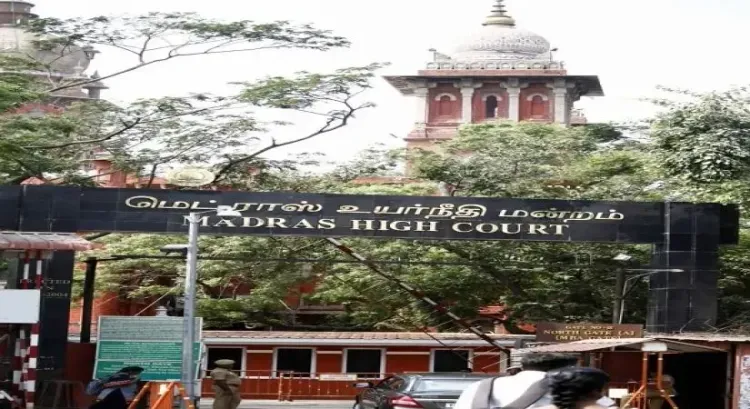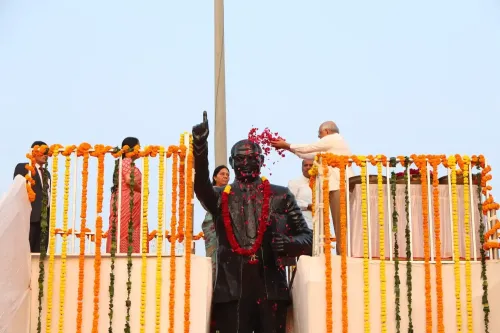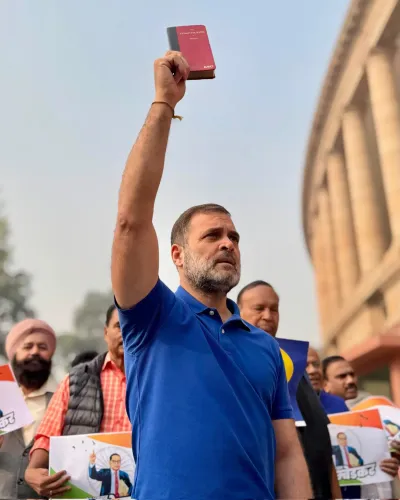Did the Madras HC Dismiss Xiaomi's Petition Against ED Proceedings in FEMA Violation Case?

Synopsis
Key Takeaways
- The Madras High Court upheld the ED's right to proceed with adjudication.
- Xiaomi's royalty payments to foreign entities are under scrutiny.
- The ruling emphasizes adherence to FEMA regulations in international transactions.
- Legal processes continue to impact foreign companies operating in India.
- Transparency in financial dealings is critical for compliance.
Chennai, July 3 (NationPress) The Madras High Court has dismissed the petitions submitted by Xiaomi Technology India Pvt Ltd and its Chief Financial Officer Sameer B.S. Rao, which sought to nullify the proceedings initiated by the Enforcement Directorate (ED) regarding alleged infringements under the Foreign Exchange Management Act (FEMA). These violations pertain to royalty payments totaling Rs 5,551 crore.
Justice N. Anand Venkatesh, who delivered the ruling recently, stated that the court would refrain from intervening at the 'formation of opinion' stage of the FEMA adjudication process, viewing it merely as a preliminary step rather than a final decision on liability.
Xiaomi India is involved in the procurement, distribution, and sale of products under the Xiaomi brand throughout India. As part of its operations, the company entered into royalty agreements with Qualcomm Incorporated and Qualcomm Technologies Inc., both based in the US, as well as Beijing Xiaomi Mobile Software Co. Ltd, a Chinese affiliate.
The ED has claimed that Xiaomi transferred Rs 5,551 crore to these foreign entities as royalty payments from 2016 to 2022 without securing prior approval from the Reserve Bank of India (RBI), a stipulation under FEMA for specific types of foreign transactions, particularly those involving third-party dealings.
Following its investigation, the ED lodged a complaint, leading to a show-cause notice being issued by the Adjudicating Authority under FEMA, which Xiaomi contested in the High Court in April 2024.
Representing Xiaomi, senior advocate K.G. Raghavan argued that the royalty payments constituted legitimate current account transactions and thus did not necessitate RBI’s prior consent. He maintained that the ED's initiation of adjudication proceedings was unjustified.
Conversely, Additional Solicitor General L. Sundaresan, representing the ED, contended that the writ petition was premature as the adjudication was still in the opinion-forming phase.
He emphasized that this phase requires only prima facie evidence suggesting a contravention of FEMA regulations, without needing conclusive findings.
Sundaresan also referenced a communication from Qualcomm, which described Xiaomi as a 'third party' making payments on behalf of foreign group entities—an action that the ED argues violates FEMA.
Upholding the ED's arguments, the High Court deemed that intervention at this stage was unwarranted, allowing the adjudication proceedings to move forward. As a result, Xiaomi's challenge against the show-cause notice and opinion formation was rejected.
'In the considered opinion of this Court, the case has now arrived at the stage under Rule 4(4) of the FEMA Rules, which is the defense stage. Hence, the petitioners will be entitled to all requested documents, including the non-RUDs,' the court stated in its judgment delivered on June 26.









